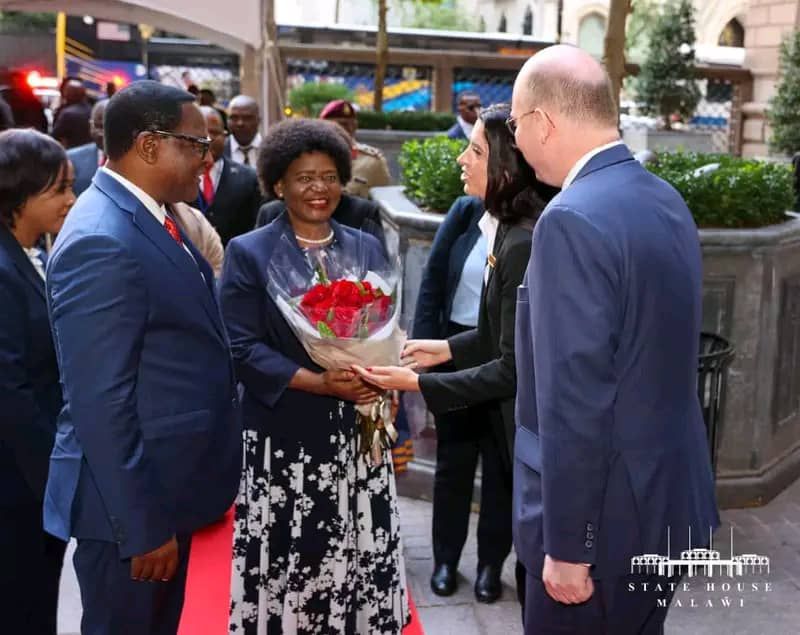By Burnett Munthali
On Wednesday, September 18, 2024, Malawi voted against a United Nations General Assembly resolution calling for Israel to end its presence in the occupied Palestinian territories. This decision has sparked debate both domestically and internationally, as Malawi joins a handful of nations opposing the resolution, which has long been a focal point in the Israeli-Palestinian conflict.
The resolution, backed by many countries, called on Israel to cease its military and civilian presence in territories considered occupied, including the West Bank, East Jerusalem, and Gaza. It reaffirmed the international community’s stance on the need for a two-state solution, where both Israel and Palestine would coexist as independent states, with clearly defined borders based on pre-1967 lines.

For years, the UN has maintained that Israel’s occupation of these territories violates international law. The resolution also emphasized the need for the protection of human rights for Palestinians living under occupation and urged Israel to halt settlement activities, which many consider illegal under international law.
Malawi’s decision to vote against the resolution comes as a surprise to some, given the country’s historic support for anti-colonial struggles and human rights causes, particularly in Southern Africa. However, Malawi has increasingly aligned itself with Israel in recent years, strengthening diplomatic and economic ties.
In recent times, the Malawian government has made no secret of its growing relationship with Israel. In 2020, Malawi announced plans to open an embassy in Jerusalem, becoming one of the few African nations to do so. This move symbolized Malawi’s recognition of Jerusalem as Israel’s capital, a controversial stance that defies international consensus, as most countries still recognize Tel Aviv as Israel’s capital due to the unresolved status of Jerusalem in peace negotiations.
Several factors likely influenced Malawi’s vote. First and foremost, Malawi’s deepening political and economic relationship with Israel has likely played a key role. Israel has increasingly sought to improve its ties with African nations, providing them with development assistance, agricultural expertise, and military support. In Malawi, Israel’s assistance in areas such as irrigation, healthcare, and technology has been welcomed, helping foster a closer bilateral relationship.
Additionally, Malawi’s stance may reflect the broader geopolitical shifts in Africa, where several countries have moved to strengthen ties with Israel, partly influenced by the changing dynamics in the Middle East, including the Abraham Accords, which normalized relations between Israel and several Arab nations. These developments have encouraged some African nations to rethink their positions on the Israeli-Palestinian conflict.
Domestically, Malawi’s vote has sparked mixed reactions. Some view it as a pragmatic decision, pointing to the benefits Malawi has gained from its relationship with Israel. The government, under President Lazarus Chakwera, may be seeking to solidify economic and diplomatic ties that it believes could spur development in Malawi.
However, critics argue that this vote contradicts Malawi’s long-standing values of justice and support for self-determination, values deeply rooted in the country’s own struggle for independence. Some civil society organizations and political figures have expressed disappointment, noting that Malawi has historically sided with liberation movements and supported the rights of oppressed peoples, especially during the era of apartheid in South Africa.
Opposition leaders have also questioned whether the government is prioritizing short-term economic gains over Malawi’s ethical responsibilities on the global stage. They warn that Malawi’s position on this issue may undermine its reputation in international forums, especially among African and Arab nations that continue to support the Palestinian cause.
Malawi’s vote places it at odds with much of the African Union (AU), which has traditionally backed resolutions in support of Palestinian rights. Most African countries continue to side with Palestine in the Israeli-Palestinian conflict, drawing on their own experiences with colonialism and struggles for self-determination. Malawi’s stance could strain its relations with certain AU members who maintain strong support for Palestine.
At the same time, Malawi’s decision aligns it with countries such as the United States and several Western allies that support Israel in international forums. It also signals Malawi’s desire to play a more prominent role in global geopolitics, particularly in the context of its developing relationship with Israel.
Malawi’s vote against the UN resolution demanding an end to Israel’s presence in occupied Palestinian territories reflects a complex web of political, economic, and diplomatic considerations. While it signals a shift in Malawi’s foreign policy, aligning more closely with Israel, it also raises important questions about the nation’s commitment to international norms and its historical support for liberation and self-determination.
As Malawi continues to navigate its role on the international stage, this decision is likely to remain a topic of debate, both within the country and across the continent. Whether Malawi’s closer ties with Israel will yield long-term benefits or complicate its international relationships remains to be seen.


